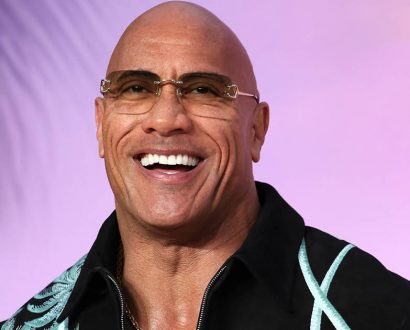Does being a billionaire, and we’re talking about so many billions you could burn through one each year and still not run out, make you untouchable?
Surely not, you’d hope, and yet it does allow you to contort reality somewhat, to have opprobrium, or bad publicity, flow around you, as if you are some kind of dark star.
It probably helps if you’re a robot, too, but more of that shortly.
This ability to control events, or at least perception of them, is not just a result of material wealth – even if you’re the world’s eighth-richest man, valued at US$60.2 billion, as Mark Zuckerberg is (as of March 2019) – it’s about surrounding yourself with the very best people that your lovely money can buy.
And it’s why, as difficult as things were for the embattled Zuckerberg in 2018 – who, as he battled Facebook’s various scandals, had started appearing in public dressed as ‘the defendant’ rather than the youthful delinquent he used to look like – it’s still likely that he’ll float magically away from the ominous clouds encircling him.
Consider how good the spin doctors around Zuckerberg – the CEO of a company that needs no introduction and wastes more of our valuable time than reality-TV, commuting and supermarket queues combined, and which you’ve probably looked at three times today already – must be.
Saving face
One of the most incredible feats that Zuckerberg and his cohort have pulled off is redeeming his public persona, time and again, yet no more so than after the release of the incredible movie that chronicles his seemingly soulless climb to global domination, The Social Network, came out, in 2010.
You might not remember your reaction to this Oscar-winning film’s excoriation of the then 26-year-old Geek God, but it really did seem like it would, or should, ruin public perception of him forever – but he actually held a screening of the film for all his staff instead.
In this dark docudrama, he’s not just a socially awkward jerk with no fashion sense, he’s a colossal asshole who knifed his friends as readily as his foes, and savagely ripped off those All American Winklevoss twins (okay, it was hard to feel sorry for them).
At the time, the film filled people with hatred for ‘the Zuck’, as it was common to call him back then, who even talked about not using FB any more, in protest. How many times have we heard, or made, those kind of promises in the years since? Or read about Facebook’s imminent demise, which would surely cause Zuckerberg’s fall, because governments are set to neuter it, and young people are abandoning it. And yet still it grows.
The Zuck has since admitted he found The Social Network “hurtful”, and, predictably, accused its makers of cruel poetic licence: “I think the reality is that writing code and then building a product and building a company is not a glamorous enough thing to make a movie about, so you can imagine that a lot of this stuff they had to embellish or make up,” he said.
He did admit his wardrobe – the famous grey T-shirt he used to wear every day – was one thing they got right.
He also admits that he had many versions of the same shirt because he did not want to waste time making “silly or frivolous” decisions such as what to wear.
“I really want to clear my life so that I have to make as few decisions as possible about anything, except how to best serve this community (of Facebook users),” he says.
There is a virulent internet theory that suggests Zuckerberg might be a robot – a theory helped by quotes about his frighteningly unemotional face, his skin that seems to have no pores, and his eyes that seem to have no life in them.
As we alluded to earlier, there is a virulent internet theory that suggests Zuckerberg might be a robot – a theory helped by quotes about his frighteningly unemotional face, his skin that seems to have no pores, and his eyes that seem to have no life in them (his wooden performance in front of US Congress in April 2018 after the Cambridge Analytica scandal was just creepy).
The dead-fish eyes are one thing actor Jesse Eisenberg couldn’t quite pull off, but it’s hard to ignore how punishing his performance, and the lines the Aaron Sorkin script fed him, were to Zuckerberg’s personal brand, right from the opening scene, when the girl who’s breaking up with him spits out: “You’re going to go through life thinking that girls don’t like you because you’re a nerd. And I want you to know, from the bottom of my heart, that that won’t be true. It’ll be because you’re an asshole.”
Even when Sorkin later attempts to redeem him, having a character tell him he’s not really an asshole, and that he should stop trying to be one, the lines are telling. “Creation myths need a devil,” as the young girl says.
Zuckerberg might not quite be seen as the devil – the man he allegedly helped elect in America has that role in the bag – but there are plenty of people who seem to think he has no soul.
Right now, Zuckerberg might not quite be seen as the devil – the man he allegedly helped elect in America has that role in the bag – but there are plenty of people who seem to think he has no soul.
It’s worth watching the movie again today, even if only to chuckle quietly at how badly we were all underestimating Facebook’s power back then. The slides that end the film point out that the site had 500 million users at the time, and a valuation of US$25 billion, and that Zuckerberg had recently been minted as the world’s youngest billionaire.
The echo chamber
Today, the company claims to
have more than two billion active users per month and is valued at more than US$500 billion. Back then, it felt like a site you used to like your friends from a distance, and to share photos. Now it is an advertising platform of unique and penetrating power.
As for Zuckerberg himself, to paraphrase one of the movie’s most memorable lines, “You know what’s cooler than a billion dollars? Seventy-five billion.”
The most frightening figure of all, though, is that the world’s biggest social network, is now the place where 44% of Americans get most of their news. You don’t have to be a journalist to find that terrifying.
Because Facebook, famously, is an echo chamber. Different people don’t see the same things on the site, every day, because what they’re presented with, what they’re encouraged to think of as important, is sorted by an algorithm, based on personal information they have, unknowingly or perhaps innocently, fed into FB themselves. An algorithm with Zuck’s digital fingerprints all over it.
Collecting that data, and allowing it to be used by third-party advertisers to sell things, and by companies like Cambridge Analytica to influence elections, or Brexit votes, is what has landed Zuckerberg and his company in the kind of slowly bubbling water that can eventually kill even the most expensive lobster.
Various government investigations, in more than one country, have also forced him to make some very public appearances, being questioned, in the US at least, by people who barely seemed to understand the tech-led world they were delving into. Zuckerberg – briefed, coached and scripted by teams of the best lawyers money can buy – gently batted their questions away, beaming his plastic, low-wattage smile at them, and looking for all the world like the geekiest kid in school being called to the headmaster’s office for hacking into her computer.
He kind of almost apologised for not taking “a broad enough view of our responsibility” and for not doing “enough to prevent (the platform) from being used for harm”.
Perhaps advised by the same spin masters who redeemed his reputation in the past, Zuckerberg recently tried to explain his good intentions by publishing a 6,000-word manifesto about Facebook.
Perhaps advised by the same spin masters who redeemed his reputation in the past – boasting of his philanthropy, seeding profiles of him as the positive face of technology and futurism – Zuckerberg recently tried to explain his good intentions by publishing
a 6,000-word manifesto about Facebook and its place in the modern world.
Amid lots of fuzzy, warm platitudes about communities and families, and vague promises to do better, he indicated his personal opinion that Facebook has, by accident rather than design, become one of the most influential and powerful organisations in the world.
And that it shouldn’t really worry any of us that this hugely influential site is now performing the kind of things that would seem the work of elected officials, despite being run entirely by unelected rich people, who are all getting richer, and have spent the past few years denying that they have any power at all. It’s a kind of ‘Whoops, we seem to be running the world! Oh well, you can trust us’ view, and one that asks us all to forget just how much foresight Zuckerberg clearly demonstrated in the early days of building his empire.
Public vs private impact
The criticism, the bad headlines, the revelations that the site mines info from our private messages, the #DeleteFacebook movement, they all swirl around Zuckerberg and his company, seemingly on a daily basis, but is it really having any effect on him?
It seems highly unlikely, and the figures prove it. FB’s privacy scandals might have caused market jitters briefly, but after hitting an eight-month low back on 27 March 2018 – after the Cambridge Analytica story broke in The New York Times – the company’s shares had already climbed 23 per cent in a matter of months. Zuckerberg himself had also gained US$13 billion in that little boom time too.
Meanwhile, on 2 May, Cambridge Analytica announced it would file for bankruptcy.
Apparently, Facebook engagement was steady, even during the privacy scandals, and it still hauled in US$12 billion in the first quarter of 2018,
a 49 per cent jump, year on year.
Publicly, Zuckerberg says he’s focused on restoring trust, and Facebook has tinkered with its terms and conditions and showed a mildly contrite public face.
Privately, though, it seems like that the Zuck feels like, once again, nothing can really touch him.
As one critic neatly summed him up recently, “Zuckerberg isn’t a villain because he treated some people badly when he was 20 years old. If anything, he’s a villain because he’s one of the most powerful people alive, and nobody asked him to be.”
And nothing, it seems, can touch him.










